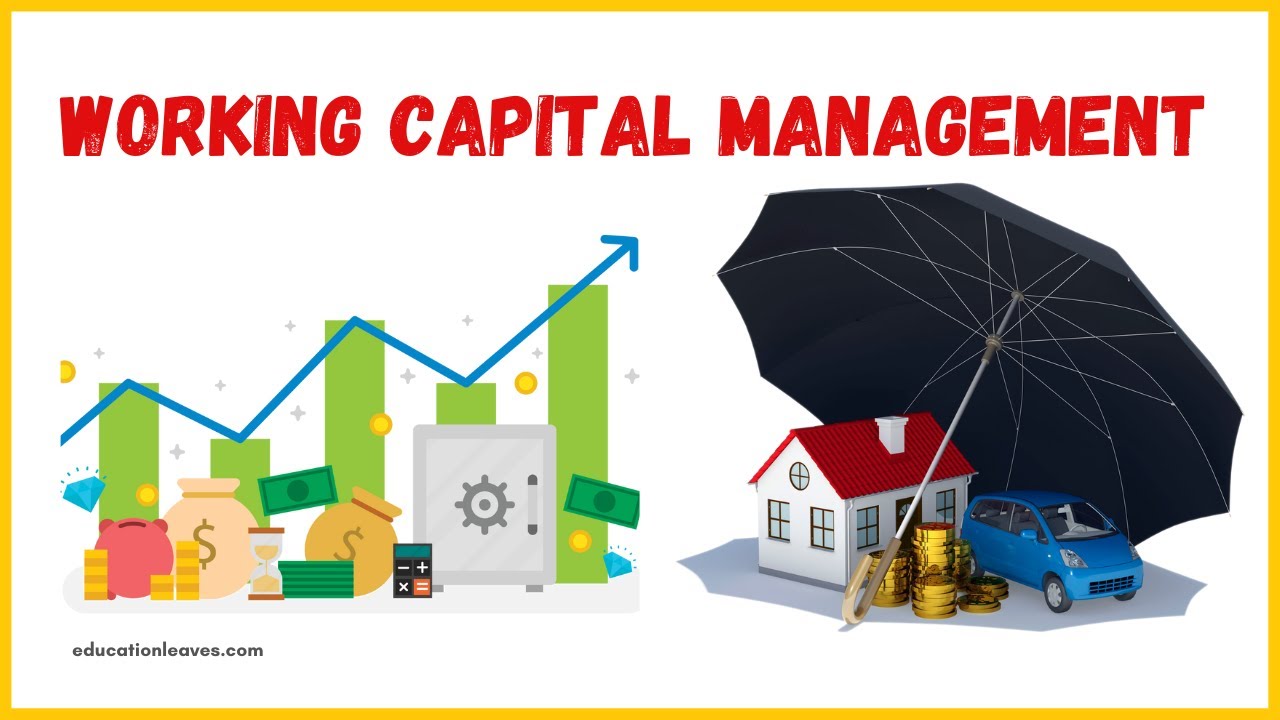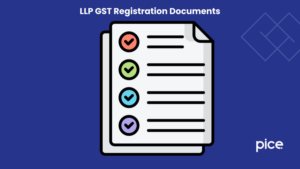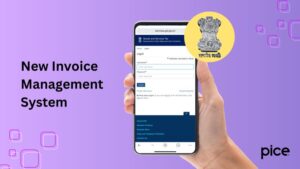Impact of GST on Working Capital
- 28 Aug 24
- 11 mins
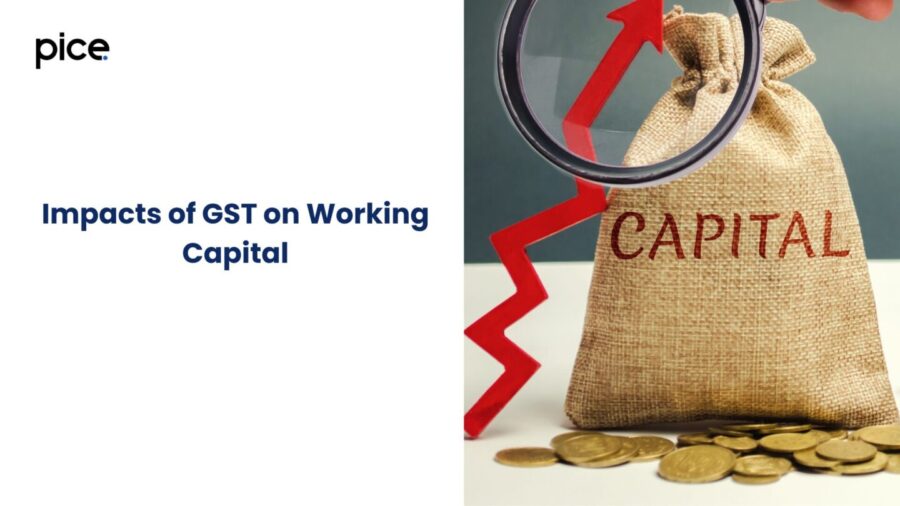
Impact of GST on Working Capital
Key Takeaways
- Effective working capital management is crucial for maintaining cash flow and operational efficiency under the GST regime.
- GST has streamlined the tax structure, impacting the working capital cycle and requiring timely tax payments.
- MSMEs must adapt their working capital practices to navigate GST compliance and optimize input tax credits.
- Proper inventory and raw material procurement management are essential for improving cash flow and reducing operational costs.
- Managing the timeline for tax payments is critical for maintaining financial health and avoiding penalties under GST.
Importance of Working Capital
Working capital is crucial for the smooth operation of any business. It refers to the funds available to meet short-term obligations and day-to-day operational costs. Adequate working capital ensures that a business can maintain its cash flow, meet current liabilities, and invest in growth opportunities.
The introduction of GST has highlighted the importance of managing working capital effectively. GST has streamlined the tax structure, but it has also introduced challenges like compliance costs and the need for timely payments. Businesses must now navigate the process of filing taxes and managing their cash flow to ensure they can meet their tax liabilities.
Working capital is essential for maintaining operational efficiency. It allows businesses to manage their inventory, procure raw materials, and meet operational costs without disruption. Adequate working capital also enables businesses to take advantage of credit for taxes paid, improving their financial health and growth prospects.
For business owners, understanding the importance of working capital is vital. It impacts everything from day-to-day operations to long-term strategic decisions. Effective working capital management can lead to improved productivity levels, better financial growth, and a more stable business environment.
The Cycle of Working Capital
The working capital cycle is the process by which a business converts its current assets into cash. This cycle includes purchasing raw materials, producing goods, selling products, and collecting receivables. The cycle's length can significantly impact a business's cash flow and operational efficiency.
Under the GST regime, the working capital cycle has become more critical. Businesses must now consider the timing of their cash inflows and outflows, including the impact of GST on their taxable output and input tax credit. The GST structure requires businesses to pay tax at the time of sale, which can affect their cash flow.
💡If you want to pay your GST with Credit Card, then download Pice Business Payment App. Pice is the one stop app for all paying all your business expenses.
Managing the working capital cycle involves optimizing each stage to ensure smooth operations. This includes managing inventory levels, streamlining the procurement process, and ensuring timely collection of receivables. Businesses must also manage their current liabilities, including tax payments and other operational costs.
The introduction of GST has added complexity to the working capital cycle, particularly regarding compliance procedures and the timing of tax payments. Businesses must now navigate the process of filing taxes online, managing their input credits, and ensuring they meet their tax obligations on time. Effective management of the working capital cycle can help businesses improve their financial health and maintain operational efficiency.
Managing Working Capital in MSMEs
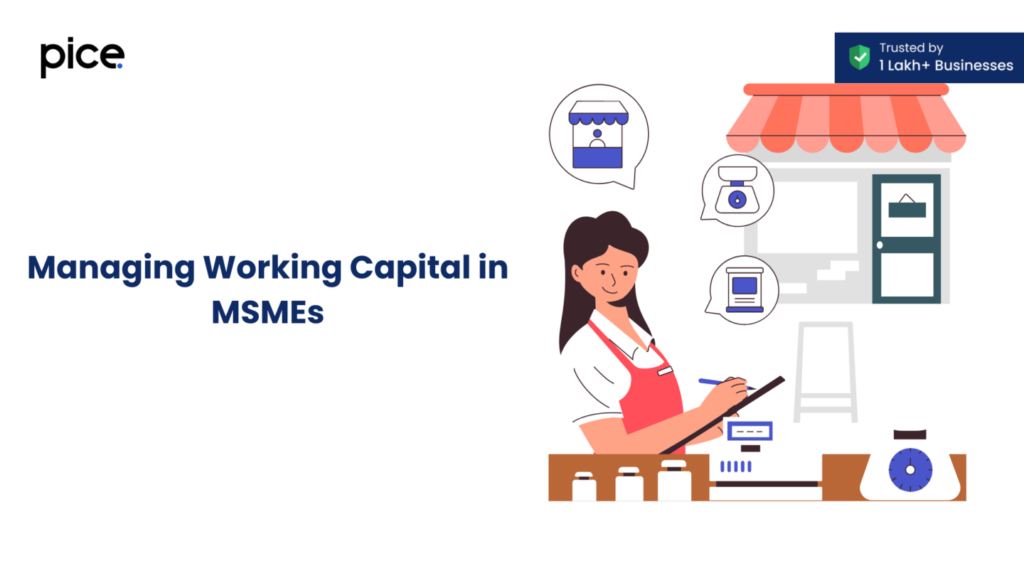
Micro, Small, and Medium Enterprises (MSMEs) face unique challenges in managing working capital. These businesses often operate with limited resources and must navigate a complex regulatory environment. The introduction of GST has added to these challenges, requiring MSMEs to adapt their working capital management practices.
For MSMEs, managing working capital effectively involves optimizing cash flow, reducing operational costs, and ensuring timely payments. The GST regime offers opportunities for input tax credits, which can help MSMEs manage their tax liabilities and improve their cash flow. However, accessing these credits requires proper documentation and compliance with GST regulations.
MSMEs must also manage their inventory levels and procurement processes to ensure they have the necessary raw materials without tying up too much capital. This involves balancing the need for sufficient inventory to meet demand with the need to minimize excess stock and reduce carrying costs.
The GST regime has also introduced the need for online registration and compliance with tax regulations. MSMEs must navigate these processes to ensure they can access input tax credits and meet their tax obligations. This includes understanding the standard GST rate, managing compliance costs, and ensuring they meet the requirements for timely tax payments.
Advantages of Effective Working Capital Management
Effective working capital management offers several advantages for businesses, particularly in the context of the GST regime. Proper management can improve cash flow, reduce operational costs, and enhance overall financial health.
One significant advantage is the ability to optimize input tax credits. By managing their working capital effectively, businesses can ensure they have the necessary documentation to claim credits for taxes paid on raw materials and other inputs. This can reduce their overall tax liability and improve cash flow.
Effective working capital management also helps businesses maintain operational efficiency. By ensuring they have the necessary funds to meet day-to-day expenses, businesses can avoid disruptions in their operations and maintain productivity levels. This includes managing cash inflows and outflows, optimizing inventory levels, and ensuring timely payments to suppliers.
For MSMEs, effective working capital management can lead to improved financial growth and stability. By managing their cash flow and tax liabilities, these businesses can invest in growth opportunities and navigate the challenges of the GST regime. This includes accessing input tax credits, managing compliance costs, and ensuring they meet their tax obligations.
Overall, effective working capital management is essential for navigating the complexities of the GST regime and ensuring business success. By optimizing their working capital, businesses can improve their financial health, maintain operational efficiency, and achieve long-term growth.
Managing Inventory
Managing inventory is a critical aspect of working capital management. For businesses, particularly those in the manufacturing and retail sectors, inventory represents a significant portion of their current assets. Effective inventory management can help businesses optimize their cash flow, reduce carrying costs, and improve operational efficiency.
Under the GST regime, managing inventory has become even more critical. Businesses must now consider the impact of GST on their inventory levels, including the timing of tax payments and the availability of input tax credits. Proper inventory management can help businesses navigate these challenges and maintain a healthy cash flow.
One key aspect of inventory management is optimizing stock levels. Businesses must balance the need for sufficient inventory to meet demand with the need to minimize excess stock and reduce carrying costs. This involves analyzing sales patterns, forecasting demand, and implementing efficient procurement processes.
The introduction of GST has also introduced new challenges for inventory management. Businesses must now consider the impact of GST on their procurement processes, including the timing of tax payments and the availability of input tax credits. Effective inventory management can help businesses navigate these challenges and maintain operational efficiency.
Overall, managing inventory effectively is essential for navigating the complexities of the GST regime and ensuring business success. By optimizing their inventory levels, businesses can improve their cash flow, reduce operational costs, and achieve long-term growth.
Raw Material Procurement
Procuring raw materials is a crucial aspect of working capital management. For businesses in the manufacturing sector, raw materials represent a significant portion of their current assets. Effective procurement processes can help businesses optimize their cash flow, reduce operational costs, and maintain production efficiency.
Under the GST regime, the procurement of raw materials has become even more critical. Businesses must now consider the impact of GST on their procurement processes, including the timing of tax payments and the availability of input tax credits. Proper procurement processes can help businesses navigate these challenges and maintain a healthy cash flow.
One key aspect of raw material procurement is optimizing the supply chain. Businesses must establish strong relationships with suppliers, negotiate favorable terms, and implement efficient procurement processes. This involves analyzing supplier performance, forecasting demand, and ensuring timely delivery of raw materials.
The introduction of GST has also introduced new challenges for raw material procurement. Businesses must now consider the impact of GST on their procurement processes, including the timing of tax payments and the availability of input tax credits. Effective procurement processes can help businesses navigate these challenges and maintain operational efficiency.
Overall, procuring raw materials effectively is essential for navigating the complexities of the GST regime and ensuring business success. By optimizing their procurement processes, businesses can improve their cash flow, reduce operational costs, and achieve long-term growth.
Timeline for Tax Payments
Managing the timeline for tax payments is a critical aspect of working capital management under the GST regime. Businesses must ensure they meet their tax obligations on time to avoid penalties and maintain a healthy cash flow. Proper management of tax payment timelines can help businesses optimize their cash flow and reduce compliance costs.
Under the GST regime, businesses are required to file monthly or quarterly returns and pay their tax liabilities accordingly. This involves calculating the GST liability, claiming input tax credits, and ensuring timely payment of taxes. Businesses must also manage their cash flow to ensure they have sufficient funds to meet their tax obligations.
One key aspect of managing the timeline for tax payments is understanding the GST filing process. Businesses must navigate the online taxation process, including registering on the GST portal, filing returns, and making payments. Proper documentation and record-keeping are essential for ensuring accurate filings and avoiding penalties.
The introduction of GST has also introduced new challenges for managing tax payment timelines. Businesses must now consider the impact of GST on their cash flow, including the timing of tax payments and the availability of input tax credits. Effective management of tax payment timelines can help businesses navigate these challenges and maintain operational efficiency.
Overall, managing the timeline for tax payments effectively is essential for navigating the complexities of the GST regime and ensuring business success. By optimizing their tax payment timelines, businesses can improve their cash flow, reduce compliance costs, and achieve long-term growth.







